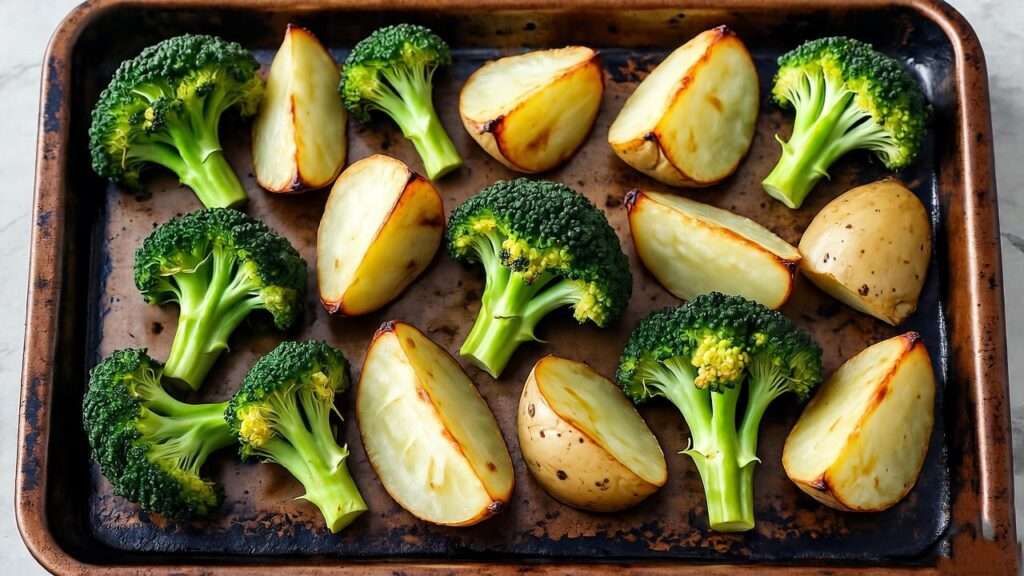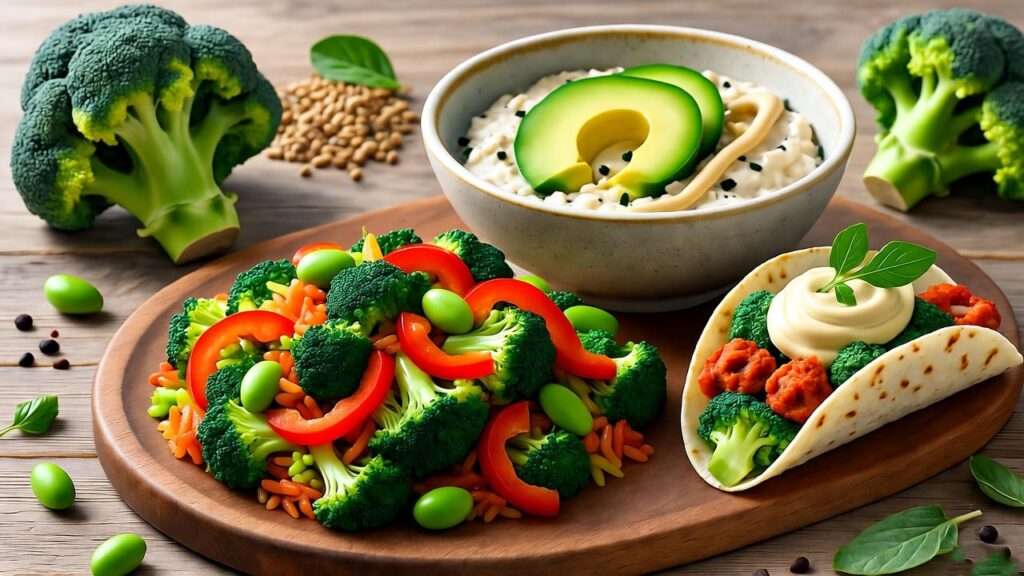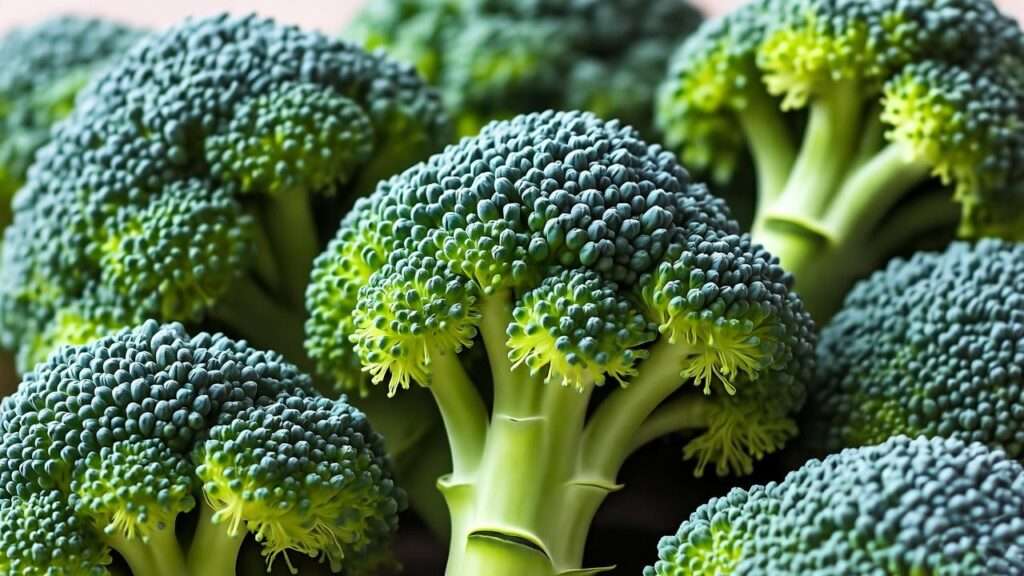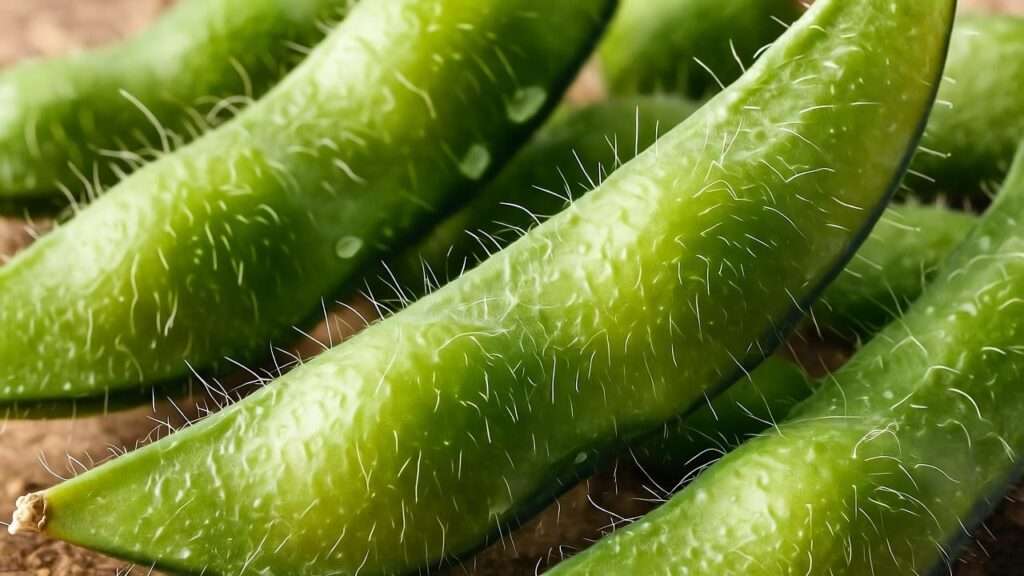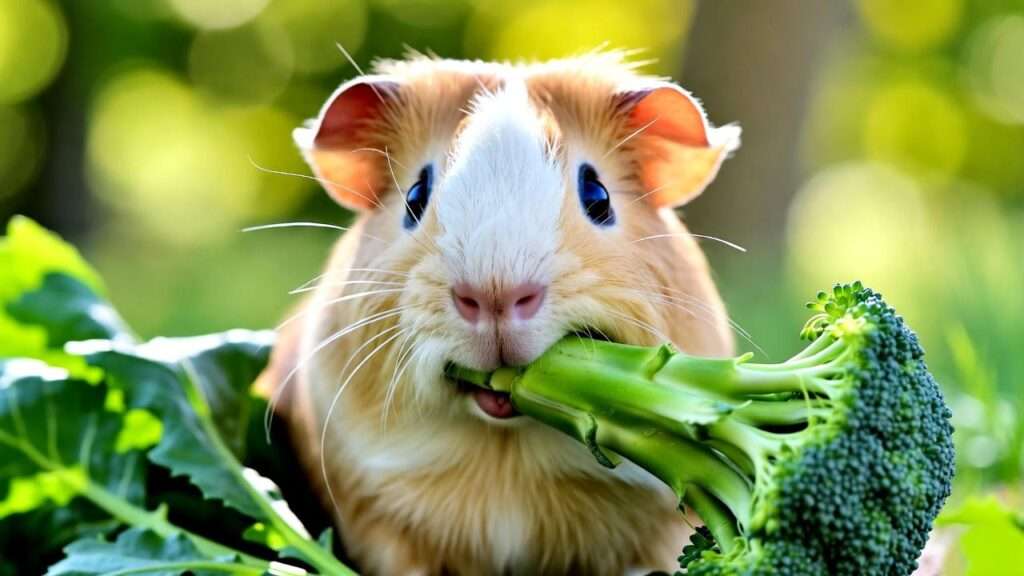Picture this: You’re chopping veggies for dinner, and your curious bunny hops over, sniffing the air with those twitching whiskers. That fresh broccoli on the counter looks tempting—for both of you! But before you toss a floret to your furry friend, you pause and wonder, can bunnies eat broccoli? The short answer is yes, in moderation, but there’s more to know to keep your rabbit safe and thriving. As a dedicated rabbit owner, you want to ensure every bite supports their health. This comprehensive guide, backed by veterinary expertise and real-world rabbit care experience, dives deep into the benefits, risks, and best practices for feeding broccoli to bunnies. Drawing from insights by certified veterinarians and rabbit nutritionists, we’ll help you make informed choices for your pet’s plant-based diet, ensuring they hop happily for years to come.
Whether you’re a new bunny parent or a seasoned caretaker, this article will answer your questions, address concerns, and provide actionable tips to incorporate broccoli safely into your rabbit’s meals. Let’s explore how to balance nutrition, variety, and safety in your bunny’s diet!
Understanding Rabbit Nutrition Basics

A rabbit’s diet is the cornerstone of their health, and understanding its fundamentals is key to answering whether can bunnies eat broccoli fits into their menu. Rabbits are herbivores with sensitive digestive systems designed for a high-fiber, low-calorie diet. Missteps in feeding can lead to serious issues like gastrointestinal (GI) stasis, a potentially fatal condition. Let’s break down what makes a rabbit’s diet tick and why it matters.
Why Diet Matters for Rabbits
Rabbits rely on a diet that mimics their natural foraging habits. The bulk of their intake—about 80%—should come from high-quality hay, such as timothy or meadow hay, which promotes healthy digestion and wears down their constantly growing teeth. Fresh vegetables (10%) and a small amount of high-fiber pellets (10%) round out their needs. Treats, including certain veggies like broccoli, must be given sparingly to avoid upsetting their delicate gut balance. A poor diet can lead to obesity, dental disease, or digestive blockages, which is why every food choice counts.
Key Nutrients Rabbits Need
Rabbits require specific nutrients to thrive:
- Fiber: Essential for digestion and preventing GI stasis.
- Vitamins: Vitamin A for vision, Vitamin C for immune health, and Vitamin K for blood clotting.
- Minerals: Calcium and phosphorus in balanced amounts to support bones and prevent urinary issues.
- Water: Critical for hydration, especially when eating dry hay.
Here’s a quick overview of daily nutritional needs for an average 4-6 lb adult rabbit:
| Nutrient | Daily Requirement |
|---|---|
| Fiber | 20-25% of diet (unlimited hay) |
| Protein | 12-14% (from pellets and veggies) |
| Calcium | 0.5-1% (avoid excess to prevent stones) |
| Water | 50-100 ml per kg of body weight |
Is Broccoli Safe for Bunnies? The Straight Answer

So, can bunnies eat broccoli? Yes, rabbits can eat broccoli in small, controlled amounts, but it’s not a free-for-all. This cruciferous vegetable offers nutritional benefits but comes with caveats due to its potential to cause digestive issues. Let’s unpack broccoli’s profile and what science says about its safety for rabbits.
Nutritional Profile of Broccoli
Broccoli is packed with nutrients that can benefit rabbits when fed correctly. Here’s a breakdown of its nutritional content per 100 grams (raw):
- Calories: 35 kcal
- Fiber: 2.6 g (supports digestion)
- Vitamin C: 89.2 mg (boosts immunity, crucial for rabbits who can’t produce it)
- Vitamin A: 623 IU (supports vision and skin health)
- Vitamin K: 101.6 µg (aids blood clotting)
- Calcium: 47 mg (moderate, but requires monitoring)
- Water: 89% (hydrates the digestive tract)
This nutrient density makes broccoli a tempting choice, but its cruciferous nature requires caution, which we’ll explore later.
Scientific Backing: What Studies Say
Veterinary guidelines, such as those from the House Rabbit Society, list broccoli as a safe vegetable for rabbits when fed in moderation. A 2019 study in Veterinary Medicine International on rabbit nutrition highlights that leafy greens and select cruciferous vegetables provide essential vitamins without overloading calories, but overfeeding can disrupt gut flora. The key is portion control and gradual introduction to prevent gas or bloating, common issues with broccoli. Always consult a rabbit-savvy vet before making significant diet changes.
Benefits of Feeding Broccoli to Rabbits

When fed properly, broccoli can be a nutritious addition to a rabbit’s diet, offering health perks that align with their plant-based needs. Let’s explore why broccoli can be a valuable treat.
Health Boosts from Broccoli
Broccoli’s nutrient profile supports several aspects of rabbit health:
- Digestive Health: The fiber in broccoli aids gut motility, helping prevent conditions like GI stasis. Its water content also keeps the digestive tract hydrated.
- Antioxidant Properties: Vitamins C and A act as antioxidants, supporting immune health and potentially reducing oxidative stress for a longer, healthier life.
- Dental Benefits: The crunchy texture of raw broccoli can help wear down a rabbit’s teeth, which grow continuously.
Real-Life Examples from Rabbit Owners
Rabbit owners often report positive outcomes when feeding broccoli sparingly. For example, Sarah, a rabbit rescuer in Oregon, noticed her 3-year-old Dutch rabbit, Muffin, showed improved coat shine after adding small broccoli florets to her weekly veggie rotation. “Muffin loves the crunch, and it’s a great way to keep her diet interesting,” she shared. Such anecdotes highlight broccoli’s role in dietary enrichment, keeping bunnies mentally stimulated through varied textures and flavors.
Tips for Success:
- Mix broccoli with other safe veggies like romaine lettuce or cilantro to maintain variety.
- Offer broccoli as a treat, not a staple, to avoid over-reliance on any single vegetable.
By leveraging broccoli’s benefits thoughtfully, you can enhance your rabbit’s diet while keeping it balanced.
Potential Risks and Side Effects of Broccoli for Bunnies

While broccoli has benefits, it’s not without risks. As a cruciferous vegetable, it can pose challenges for a rabbit’s sensitive digestive system. Understanding these risks ensures you feed broccoli safely.
Common Issues: Gas and Bloating
Broccoli contains raffinose, a complex sugar that can ferment in a rabbit’s gut, leading to gas or bloating. Symptoms include lethargy, a hunched posture, or reduced appetite—red flags requiring immediate attention. Overfeeding broccoli, especially to rabbits unaccustomed to it, increases this risk. The House Rabbit Society recommends limiting cruciferous veggies to avoid digestive distress.
Calcium Content and Urinary Risks
Broccoli’s moderate calcium content (47 mg per 100 g) and oxalates can contribute to urinary issues like bladder stones or sludge, particularly in rabbits prone to these conditions. Excess calcium can accumulate in the bladder, forming painful crystals. Monitoring total calcium intake from all foods is crucial to prevent this.
When to Avoid Broccoli Altogether
Broccoli may not suit every rabbit. Avoid it for:
- Young kits (under 12 weeks), whose digestive systems are too immature.
- Rabbits with a history of digestive sensitivities or urinary issues.
- Bunnies showing adverse reactions, like soft stools or discomfort, after eating broccoli.
How to Safely Introduce and Feed Broccoli to Your Rabbit

Now that we’ve covered the benefits and risks, let’s get practical: how do you safely feed broccoli to your rabbit? The key is careful introduction, proper portioning, and mindful preparation to ensure your bunny enjoys this veggie without health issues. Here’s a step-by-step guide to incorporating broccoli into your rabbit’s plant-based diet.
Preparation Tips
Proper preparation sets the stage for safe consumption:
- Wash Thoroughly: Rinse broccoli under cool water to remove pesticides or dirt. Organic broccoli is ideal to minimize chemical exposure, but non-organic is fine if cleaned well.
- Chop into Small Pieces: Cut broccoli into bite-sized florets or thin stem slices (about 1-2 inches). Smaller pieces are easier for rabbits to chew and digest.
- Raw Only: Never feed cooked broccoli, as cooking alters its nutritional profile and can upset a rabbit’s stomach.
- Include Leaves and Stems: Broccoli leaves and tender stems are often better tolerated than florets, as they’re lower in gas-causing compounds.
Tip: Store broccoli in a cool, dry place and use within a few days to ensure freshness, as wilted veggies can cause digestive upset.
Recommended Portion Sizes and Frequency
Portion control is critical to prevent digestive or urinary issues. Here’s a guideline based on rabbit size and age:
| Rabbit Weight | Broccoli Portion | Frequency |
|---|---|---|
| 2-4 lbs (small) | 1 small floret or 1-2 leaves | 2-3 times/week |
| 4-6 lbs (medium) | 1-2 florets or 2-3 leaves | 2-3 times/week |
| 6+ lbs (large) | 2-3 florets or 3-4 leaves | 2-3 times/week |
- Adult Rabbits: Offer broccoli 2-3 times per week as part of a varied veggie mix, not daily, to avoid overloading on calcium or raffinose.
- Kits (Under 12 Weeks): Avoid broccoli entirely, as their digestive systems are too sensitive.
- Senior Rabbits: Consult a vet, as older bunnies may have specific dietary needs.
Step-by-Step Introduction Process
Introducing broccoli requires patience to prevent digestive upset:
- Start Small: Offer a tiny piece (e.g., half a floret or one leaf) for the first time.
- Observe for 24 Hours: Watch for signs of discomfort, such as soft stools, reduced appetite, or lethargy. If these occur, stop feeding broccoli and consult a vet.
- Gradually Increase: If your rabbit tolerates the initial serving, slowly increase the portion over 1-2 weeks, staying within recommended limits.
- Mix with Other Veggies: Combine broccoli with low-gas greens like romaine lettuce or cilantro to balance the diet and reduce bloating risks.
Common Mistakes to Avoid:
- Overfeeding: Too much broccoli can cause gas or diarrhea.
- Ignoring Variety: Relying solely on broccoli neglects other essential nutrients.
- Skipping Observation: Always monitor your rabbit’s reaction to new foods.
- Feeding Florets Only: Leaves and stems are often safer and just as nutritious.
By following these steps, you can safely add broccoli to your rabbit’s diet while keeping their tummy happy.
Broccoli Alternatives: Safer or More Nutritious Options

Broccoli isn’t the only veggie that can enrich your rabbit’s diet. If your bunny doesn’t tolerate broccoli or you want to diversify their meals, consider these alternatives that offer similar nutrients with potentially fewer risks. This section ensures your rabbit’s diet remains varied and balanced.
Top Vegetable Alternatives
Here’s a comparison of broccoli and other rabbit-safe vegetables, highlighting their benefits and considerations:
| Vegetable | Key Nutrients | Pros | Cons |
|---|---|---|---|
| Romaine Lettuce | Fiber, Vitamin A, Water | Hydrating, low gas risk | Avoid iceberg (low nutrient value) |
| Kale | Vitamin C, Calcium, Antioxidants | Nutrient-dense, supports immunity | High calcium; feed sparingly |
| Cilantro | Vitamin K, Fiber | Gentle on digestion, aromatic | Strong flavor may not suit all rabbits |
| Carrot Tops | Fiber, Vitamin A | Low calorie, widely available | Carrots (roots) are high in sugar |
- Romaine Lettuce: A hydrating, low-risk option that’s gentle on the stomach. Feed 1-2 cups per 4 lbs of body weight daily.
- Kale: Packed with vitamins but high in calcium, so limit to 1-2 times per week.
- Cilantro: Aromatic and easy to digest, perfect for daily variety.
- Carrot Tops: Nutritious and low in sugar, unlike carrot roots, which should be a rare treat.
Creating a Balanced Weekly Meal Plan
To ensure nutritional diversity, rotate vegetables daily while keeping hay as the staple. Here’s a sample 7-day meal plan for a 4-6 lb adult rabbit:
- Monday: 1 cup romaine lettuce, 2 broccoli leaves, 1 sprig cilantro
- Tuesday: 1 cup green leaf lettuce, 1 small kale leaf, 1 parsley sprig
- Wednesday: 1 cup romaine, 1 small broccoli floret, 1 basil leaf
- Thursday: 1 cup spinach (sparingly), 1 carrot top, 1 cilantro sprig
- Friday: 1 cup romaine, 1 small kale leaf, 1 mint sprig
- Saturday: 1 cup green leaf lettuce, 2 broccoli leaves, 1 parsley sprig
- Sunday: 1 cup romaine, 1 carrot top, 1 small broccoli floret
Expert Tips for Optimizing Your Rabbit’s Plant-Based Diet

Beyond broccoli, optimizing your rabbit’s diet requires a holistic approach. These expert-backed tips, drawn from years of rabbit care experience, will help you ensure your bunny thrives on a plant-based diet.
Monitoring Your Bunny’s Health
A healthy diet reflects in your rabbit’s behavior and appearance. Look for these signs of a thriving bunny:
- Bright Eyes and Shiny Coat: Indicate good nutrition and hydration.
- Regular Droppings: Round, firm fecal pellets and small cecotropes show healthy digestion.
- Active Behavior: A happy, hopping bunny is a good sign of dietary balance.
Red flags include:
- Soft or irregular droppings (possible overfeeding of veggies).
- Lethargy or hunched posture (potential GI issues).
- Reduced hay consumption (a vet visit is urgent).
Check your rabbit’s weight monthly and monitor urine for cloudiness, which could signal calcium buildup.
Consulting Professionals
While articles like this provide a strong foundation, nothing replaces professional guidance:
- Find a Rabbit-Savvy Vet: Look for veterinarians certified in exotic animal care via organizations like the Association of Exotic Mammal Veterinarians (AEMV).
- Resources: The House Rabbit Society (rabbit.org) and Rabbit Welfare Association (rwa.org.uk) offer reliable diet guides and vet directories.
- When to Act: If your rabbit shows signs of digestive distress or urinary issues, consult a vet immediately.
- Offer a variety of hay types (timothy, orchard, meadow) to encourage chewing.
- Use food puzzles or scatter veggies to mimic natural foraging, boosting mental stimulation.
- Keep a diet log to track new foods and reactions, helping identify what works best.
Frequently Asked Questions (FAQs)
To address common concerns and boost SEO, here are answers to frequently asked questions about feeding broccoli to rabbits:
- Can baby bunnies eat broccoli?
No, rabbits under 12 weeks should avoid broccoli due to their immature digestive systems. Stick to hay and limited pellets, introducing veggies gradually after 3 months. - What if my rabbit eats too much broccoli?
Overfeeding can cause gas, bloating, or diarrhea. Stop broccoli immediately, ensure unlimited hay and water, and consult a vet if symptoms persist beyond 24 hours. - Is cooked broccoli okay for rabbits?
No, cooked broccoli is harder to digest and lacks the nutritional benefits of raw. Always feed fresh, raw broccoli in small amounts. - Can broccoli cause urinary problems in rabbits?
Yes, broccoli’s calcium and oxalates can contribute to bladder stones in susceptible rabbits. Limit portions and monitor urine for cloudiness. - How do I know if my rabbit is sensitive to broccoli?
Watch for soft stools, reduced appetite, or lethargy after feeding. If these occur, remove broccoli and try gentler greens like romaine. - Can I feed broccoli every day?
No, 2-3 times per week is ideal to prevent gas or calcium buildup. Rotate with other safe veggies for balance. - Are broccoli stems or leaves better than florets?
Leaves and stems are often better tolerated, as they’re lower in gas-causing compounds. Include both for variety. - What other cruciferous veggies are safe for rabbits?
Cauliflower, kale, and Brussels sprouts are safe in moderation but should be introduced slowly like broccoli.
Conclusion
Broccoli can be a nutritious treat for your rabbit when fed thoughtfully, offering fiber, vitamins, and hydration. However, its cruciferous nature demands caution to avoid gas, bloating, or urinary issues. By following the guidelines in this article—starting with small portions, monitoring reactions, and balancing with other veggies—you can safely incorporate broccoli into your bunny’s plant-based diet. Always prioritize unlimited hay, diverse greens, and fresh water to keep your rabbit healthy and hopping. If you’re unsure about your bunny’s dietary needs, consult a rabbit-savvy veterinarian for personalized advice. Share your experiences or questions in the comments below, and let’s keep the conversation going about happy, healthy rabbits!







